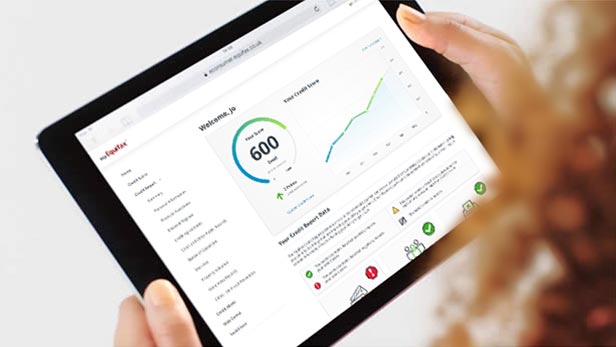What does my credit score say about me?

A credit score may be used by lenders to help them decide whether to offer you a credit agreement, for example, for a credit card, loan or mortgage. It helps them to assess the level of your creditworthiness. A low credit score may suggest a higher risk to the lender, while a higher credit score can indicate that you are more likely to make the payments. In order to calculate your credit score lenders may use data from credit reference agencies (CRAs) alongside other information they have about you, like your income.
The credit scores that you can get from CRAs like Equifax are typically different from the ones that lenders use. They give you an indication of how creditworthy a lender may find you. There is no universal score – the three main agencies in the UK use different credit score ranges, so you shouldn’t compare a specific number among the agencies. The best way to see what your credit score means is to check the score from each agency and compare it to that agency’s guidelines. For example, your Equifax Credit Score falls into the categories ‘excellent’, ‘very good’, ‘good’, ‘fair’ or ‘poor’.
If you’re planning on making an application for credit, you may want to check your Equifax Credit Report & Score in advance. Your credit report will give you a record of your borrowing history, which could help you decide whether you need to improve or keep up your borrowing habits. Meanwhile, knowing your score and what range it falls in can help to give you an indication of how lenders may view your creditworthiness.
This article was updated in April 2021; all information was correct at the time of writing.
Related Articles
- Hard vs Soft Credit Searches
- Can Renting Improve Your Credit Score?
- Guide to student overdrafts
- Guide to student credit
- What is a credit blacklist?
- What Is A Cash Advance?
- What are 0% interest credit cards?
- Moving to the UK and your credit score
- Who can see your credit report?
- Should you lease or buy your next car?
- Student loan repayments
- Balance transfers explained
- Credit cards and minimum repayments
- Financial association explained
- Getting a mobile phone contract with bad credit
- What is a credit union?
- Why have I been refused a credit card?
- Why do people use vehicle refinancing?
- Why Keep Your Credit Report Up To Date
- What to do if you've missed payments
- New interest rates for savers and borrowers
- How to maintain a good credit score
- Can you achieve the highest credit score?
- Can you pay off loans early or late – or take a payment holiday?
- Infographic: Back to basics – how do credit reports and scores work?
- What happens to credit history when moving abroad
- Credit checks for renting
- Understanding credit score ranges
- Divorce and your credit score
- How credit cards work – how they may affect your credit rating
- Students and credit reports
- Credit agreements – the basics
- Different types of credit card
- Death and credit reports
- Newlyweds, financial planning and credit
- Getting credit cards with bad credit history
- What is a guarantor and how do they work?
- Explaining compound interest
- How Credit Scores Affect Car Finance
- How can I improve my credit score?
- Getting credit with no credit history
- Soft credit searches explained
- What to consider when applying for credit cards
- What is a credit rating?
- What types of credit can you get?
- Staying on the electoral register when moving
- The Electoral Register and How It Influences Credit Scores
- 7 types of credit provider
- Electoral Roll Guide
- Credit: Why do People Use it?
- Credit Myths - The truth about Credit
- Interest Rate Types
- Credit Hygiene
- Which factors affect credit scores??
- Your Credit Limits: Do’s & Don’ts
- Secured Vs Unsecured Loans
- Joint Liability - Everything You Need to Know